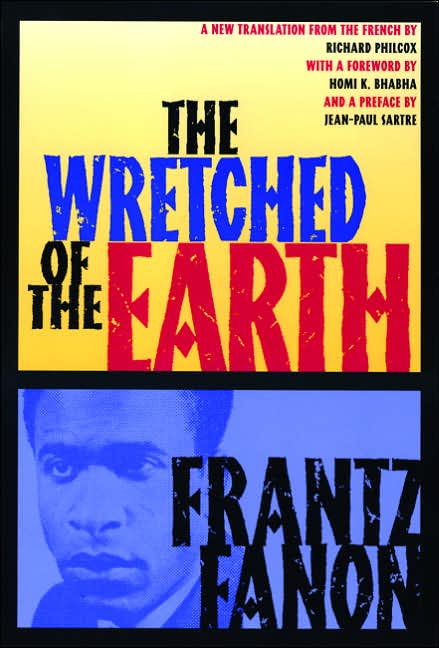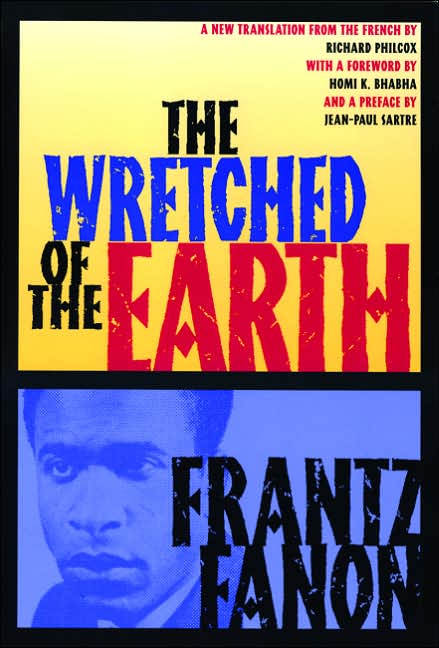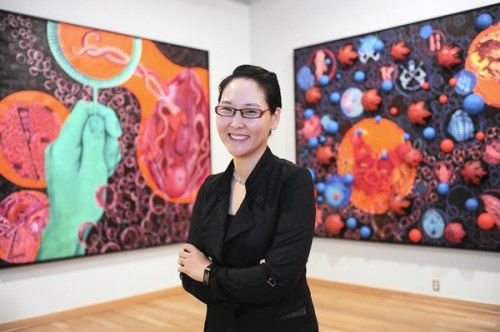
Cultural Symbiosis

This past week in Art as Discourse, it was my turn to lead the discussion. We read excerpts from Frantz Fanon’s The Wretched of the Earth and Mina Cheon’s Shamanism + Cyberspace. Frantz Fanon, 1925-1961, was a Martinique-born, Algerian writer, psychiatrist, philosopher, and revolutionary. His writings have been influential in post-colonial studies, Marxism, and critical theory. Mina Cheon, b1973, is a Korean American new media artist, educator, and scholar.

Mina Cheon
The correlation between these two writers in these readings is the idea of the “other.” Fanon speaks of the “other” in reference to colonization, with the “other” being the colonized individuals who are demonized, vilified, dehumanized, and oppressed by the colonizer. Cheon speaks of the exoticized “other” who points the way to “authentic spirituality.” I believe these descriptions are two sides of the same coin.
Cheon goes on to discuss the use of the internet for shamanism. She lists three sites that offer shamanic healing online for Americans and points to the fact that they are all “run by white Americans interested in using shamanism as a way to create another version of self-help.” She contrasts the use of shamanism online for Koreans and Americans:
While in Korea, shamanism online points to gender inequality, in America, shamanic healing via the Internet shows the disparity between cultures, between East and West. In the West shamanism signals the exotic, unknown, divine spiritualism from afar…
So goes on the say:
Today’s consumption culture and mass media, feeding the appetite of voyeurism, use foreign and strange cultures to fill the void people feel as a result of the isolation brought on by technological advancement.
I would argue that what also brings about this void is the colonization of which Fanon speaks. The demonizing and repression of culture through the domination and oppression of colonization cause an authentic culture to be suppressed and exoticized. And later, in searching for what has been lost, this search inevitably leads to the “mysterious” path of the past.
Cheon says that past and present collide in cyberspace.
Technology is a self-consuming machine. Although original experience, like shamanism, is supposedly culturally bound and cyberspace supposedly transcends culture, the two worlds collide in the Internet experience, as Western technology consumers… realize their phantasmagoric desire for combining the past and future… At stake in the relationship between the virtual and the shamanic are power and knowledge of the other.
This globalization of culture through cyberspace makes me think metaphorically about the symbiotic nature of plants. There are a few types of symbiosis (the living together of two dissimilar organisms) that take place in nature. Mutualism is when both organisms benefit from the relationship. Commensalism is beneficial to one without effect on the other. Parasitism is beneficial to one and detrimental to the other.
So I ask: what kind of symbiosis takes place in the co-opting of culture? Are we innately one human family who can borrow the best of what makes us better from each other and/or does some of this borrowing sometimes and under certain circumstances make us culture bandits?
